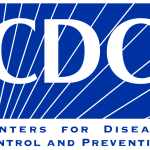Lars Larson and I discussed on-air the declining rates of vaccination, as reported by both the World Health Organization and in FDA Commissioner Robert Califf's recent article about a potential tipping point in U.S. vaccinations.
Harm Reduction
Far too many scientific papers are being retracted from prestigious scientific journals because scientists fabricated or falsified data. Although no one defends scientific fraud, few recognize its long-lasting impacts on governmental policy and society.
Both ethanol and THC have been shown to impair driving. But ethanol has a far shorter half-life than THC, making a determination of when a person became intoxicated by THC far less clear. A new study reduces that uncertainty.
Oregonians are having second thoughts about their decision to decriminalize drugs three years ago. They blame it for the state’s recent rise in overdose deaths. But a closer look at the data shows that Oregon has fared no worse than other states did when the fentanyl wave breached its borders.
Here's an article I co-authored with Emily Hemendinger for The Conversation. You can find the original version at the link at the bottom of the article.
One of the most salient features of the communication around the COVID epidemic has been fear. This includes the fears of public health officials in trying to flatten the curve. And the equally-fearful messaging of proponents of the Great Barrington Declaration or the anti-vaxxers, who say that our economy was being destroyed and our minds and bodies were being controlled. A study delves into the dynamics of communication, particularly focusing on the role of fear and warnings.
News reports say that the Centers for Disease Control and Prevention (CDC) is working hard to regain the public’s trust after the COVID failures, by pledging to put science ahead of politics. However, its recent announcement that doctors may want to test their patients’ blood for PFAS – the “forever chemicals” – is a step back from scientifically-driven decisions.
Scaling often refers to the ability of a system, application, or network to handle an increasing amount of work, users, or data. Scalability in human behavior considers how individual actions aggregate to form group dynamics, social institutions, and even global phenomena. As we continue to urbanize and our cities grow larger, it is increasingly vital to understand not just the use of resources but the creation of waste.
“There is high‐certainty evidence that ECs [electronic cigarettes] with nicotine increase quit rates compared to NRT [nicotine replacement therapy] and moderate‐certainty evidence that they increase quit rates compared to ECs without nicotine.” That is the initial statement by the Cochrane Group in its current report on electronic cigarettes. Care to know more?
In 2012, New York Mayor Michael Bloomberg proposed that to reduce obesity, the city would prohibit the sale of any sugar-containing beverage in containers greater than 16 ounces. A new study looks at a similar approach to improving public health in the U.K., by reducing the size of a glass of wine. It found that size matters – sort of.
Until human fallibility is removed from decision-making, we will continue to make errors. A new JAMA Internal Medicine piece provides an update on, as former New York City Mayor Ed Koch would say, “How am I doing?” Spoiler alert: it depends.
Ambient air quality standards have been established by testing animals and evaluating adverse health effects in populations. To maintain ambient concentrations within those standards, emissions are controlled based on statistical relationships with ambient exposures known as dose-response functions (DRFs).











